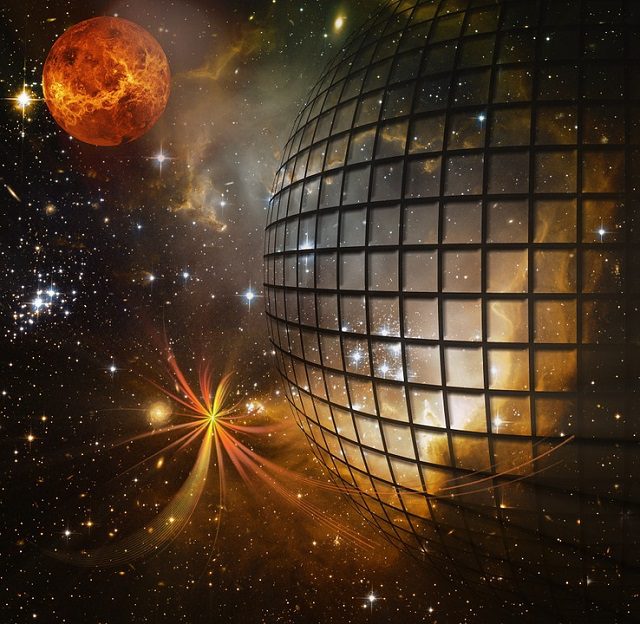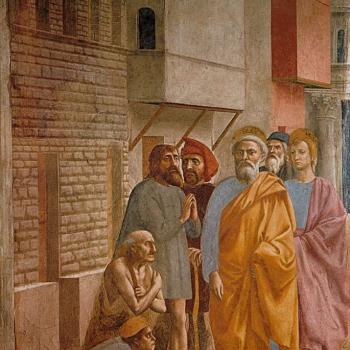
Some things are ultimately mysterious. The Holy Eucharist is one of them. Image by “uroburos” (1-29-15) [Pixabay / CC0 public domain]
* * * *
(5-3-13 and 9-15-16)
*****
The Orthodox don’t like to explain things with reason too much. They regard that as “hyper-rationalism” (hence, Aquinas and Augustine are often their whipping-boys, which is a shame). They believe essentially what Catholics do regarding the Holy Eucharist, minus the Aristotelian discussion of substance and what-not.
Let’s rejoice in what we have in common.
They would say that they are simply expressing in a different way what we do when we say that the “accidents” remain the same even though the substance is changed; i.e., deliberately avoiding philosophical discussion of substance and accidents. Reason is accorded a lower level of respect or application in Orthodoxy.
We acknowledge mystery also (every Christian view must), but we apply reason more extensively (consequently, often get accused of hyper-rationalism). The Orthodox apply reason to a similar extent in other areas, so they’re not entirely consistent on this.
They don’t approach the Holy Eucharist philosophically, but almost solely in terms of a mystery too high to comprehend at all, whereas Catholics apply reason to a greater extent, and then yield to mystery “further along the line” than Orthodox do.
I think the reverence for the Eucharist is the same. The larger problem as I see it, in Orthodoxy, is an excessive “denigration” of reason, as if (so it seems sometimes) reason and faith are antithetical. They’re not. They’re just different.
Now, when it comes to Christian faith vs. the skepticism and hyper-rationalism of atheism and agnosticism, Catholics and Orthodox are far more similar than not. We both agree that reason and/or science are not the last word on everything; not the sum of all knowledge, and that there are different kinds of knowledge beyond science and reason (intuition, experience, spirituality, inspired revelation, etc.), and mysteries and unexplained things that must ultimately be accepted in faith.
Atheists love to make out that faith and reason are as opposite and incompatible as east and west. I think we Christians (especially Catholics) greatly cherish both reason and faith, in the right balance, whereas atheists have no (religious) faith and little reason, either (once scrutinized closely). They have an appearance of reason, but it’s shallow, because it breaks down when properly examined. They do exercise “faith” of a sort, insofar as they necessarily accept unproven and unprovable axioms, as all must, who think systematically and logically (and scientifically and philosophically) at all.
The Eucharist can’t be explained by a scientific model. It makes no sense in that paradigm, because it is miraculous and involves faith and trust beyond what our senses seem to tell us. It can be somewhat (but not totally) explained philosophically (substance / accidents).
Likewise, the incarnation and Jesus’ atonement on the cross and baptismal regeneration and the indwelling of the Holy Spirit cannot be conceptualized or understood scientifically. Not all truths are reducible to science (i.e., empiricism). Nor is science without its own unproven and unprovable initial axioms.
The Holy Eucharist is a particularly extraordinary or mysterious supernatural miracle, beyond the laws of science; therefore it can’t be verified by science.
It’s not like, say, a miraculous growth of bone in a healing, that could be tested, or the Shroud of Turin, which has been tested in many ways that make sense, according to what sort of object it is.
*****
Meta Description: Explanation of the different ways in which Orthodox and Catholics regard the Holy Eucharist.
Meta Keywords: consecration, Holy communion, Holy Eucharist, Real presence, sacramentalism, sacrifice of the mass, substantial presence, The Mass, transubstantiation,substance and accidents, Orthodoxy, Eastern Orthodoxy












